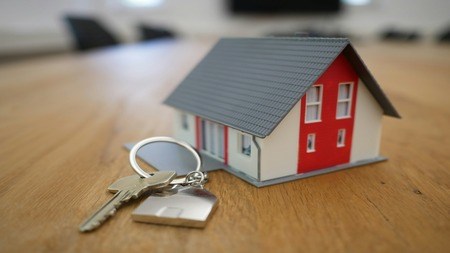Over a 20-year period, which is the most popular term for a home loan, buying a house is going to provide you with a long-term sizeable asset, but it comes at a cost, whether upfront or over the duration of the loan.
Renting on the other hand, is a perfect solution for many reasons, such as market conditions, savings, working nomadically, or not wanting to be encumbered with the costs associated with homeownership.
The decision to rent or own is always going to be based on your personal financial health. You also have to factor in your personal goals, and factors such as where you see yourself in the next 20 years, including whether you intend to start a family.
Risks
There are risks to both buying and renting. While no one can predict the future, what we have learnt from the impact of global events on the property industry, is that saving for the future is imperative, so whether buying or renting, you need to ensure that you have an emergency fund … most economists and financial advisers recommend at the bare minimum, at least three months’ worth of your monthly expenses.
Many people think that by renting, you are throwing away money or paying toward someone else’s home loan. The latter is likely true, or if not you are certainly contributing to someone else’s income, but so what? The former, that you’re throwing away money, simply isn’t true because everyone needs a roof over their heads, and that will cost money.
Factors that influence your decision:
Whether you choose to rent or buy depends on a number of factors, such as:
Interest and inflation rates.
Monthly housing cost affordability.
Insurance and other monthly commitments on your income, such as retirement funds, car payments etc.
Lifestyle.
Financial health.
Personal goals.
Stage of life.
Pros and cons
Buying:
You build equity over time but not all costs of homeownership go towards building equity.
You are responsible for all maintenance, repairs, and upgrades.
Requires a large financial and time commitment.
Home loan repayments are affected by the interest and inflation rates, which can work in or out of your favour.
The value of your property is impacted by local and national market conditions.
You make decisions about how your home looks.
Provides a sense of stability, and you are absorbed into the local community.
You need to have building insurance.
You are buying for your future, which makes buying now cheaper in the long-term.
Not always budget-friendly as there can be unknown expenses when problems arise.
Supports a customised lifestyle.
Buying may be cheaper than renting in certain areas.
Can earn extra income by renting out a room in your property or renting it out entirely.
Rental:
You do not build equity with your monthly rental payments, but you do not have the costs of maintenance and repair to worry about.
Flexibility and convenience of moving when your lease ends.
The landlord can raise rent annually or decide to sell the property.
You know exactly what your monthly housing costs are each month, so renting is very budget friendly.
You need home contents insurance but not for the building itself.
You can choose a property that caters to your current needs, and upgrade to better living conditions as you wish.
Renting is cheaper in the short-term.
You have to abide by the landlord’s rules. If a sectional title property, you also have to consider the complex rules.
You may find yourself in a dispute with the landlord, which potentially comes with costs.
Supports a transient lifestyle.
You get to experience different property-type lifestyles, such as apartment, sectional title, freehold, beachfront, or suburban.
Can negotiate rental price and increases with the landlord.
Renting frees up money for other goals.
When weighing up the pros and cons, you really should crunch the numbers. This will give you a good idea of whether you are ready to enter the home ownership market or remain as a renter.
Once you have an idea of your affordability status, you can use that information to search for a property that you can call your own.




